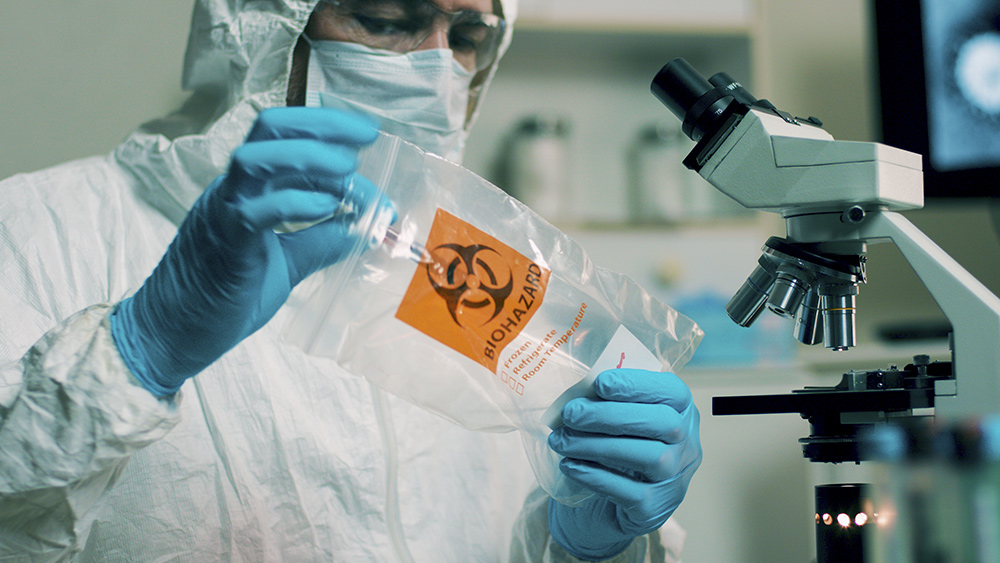Elon Musk’s Neuralink to implant its experimental brain chips on at least 11 volunteers in 2024
11/08/2023 / By Arsenio Toledo

Elon Musk’s neurotechnology startup, Neuralink, is preparing to perform brain surgery on volunteers to implant the company’s experimental brain chips in them.
This comes after the Food and Drug Administration (FDA) earlier this year gave Neuralink, which Musk co-founded in 2016, approval to launch human trials on the chips that the tech mogul described as a “Fitbit in your skull.” (Related: DARK SECRETS: Musk’s company Neuralink HIDES photos of DEAD animal subjects used to test brain implants.)
For the initial human trials, Neuralink’s ideal candidates would be adults under 40 years old whose four limbs are paralyzed due to spinal cord injuries or amyotrophic lateral sclerosis.
Such patients would have a large chunk of their skulls removed by surgeons so that large robots can then insert a series of electrodes and super thin wires into their brains. When the robots finish up their work, they will replace the missing pieces of the skull with computers the size of a quarter that are meant to stay there for years. The surgeon is expected to work for several hours to perform the craniectomy. Once the robot takes over, it is expected to work for about 25 minutes inserting the device into the brain.
The electrodes would be implanted into the “hand knob area” of the patients’ premotor cortexes, the part of the brain that controls the movement of the hands, wrists and forearms. Neuralink’s goal with the surgery is to show that the device can be safely inserted and the implanted computer can then be used to collect useful data from that part of the patient’s brain.
Neuralink hopes that, if this part of the trial is successful, it could receive a lot of data on the brain activity of paralyzed individuals.
This data could then be used to improve ongoing efforts to convert a person’s thoughts into a range of commands a computer can understand. This could then create a sort of symbiosis between the humans with implanted Neuralink chips and computers, allowing these people to send messages, play games or direct machines to make certain actions using their thoughts, including making machines attached to paralyzed limbs move to help restore certain motor functions to these individuals.
Thousands of volunteers lining up to receive Neuralink brain implant
According to Neuralink, thousands of prospective patients have expressed interest in receiving brain implants from the company.
Thanks to the FDA’s green light, which allows Neuralink to perform additional implant trials next year without a yearlong evaluation period, the company will be able to implant the device on at least 11 people next year.
Should these trials be successful, the company hopes to operate on another 27 people by 2025 and 79 people by 2026. Following the end of trials in 2026, Neuralink plans to “really ramp up” surgeries due to Musk being impatient. The company expects to perform 499 surgeries in 2027 and a whopping 22,204 surgeries by 2030.
While long-term goals for Neuralink involve providing interfaces for people paralyzed in all four limbs, short-term goals hope to help people with neurological disorders.
Learn more about Elon Musk’s business ventures at ElonMuskWatch.com.
Watch this episode of “World Alternative Media” as host Josh Sigurdson discusses how brain interfaces like Neuralink are built to enslave people.
This video is from the World Alternative Media channel on Brighteon.com.
More related stories:
Brain CONTROL: Musk’s neurotechnology company Neuralink looking for brain implant trial volunteers.
Elon Musk’s Neuralink receives FDA approval to begin clinical trials for brain implants.
FDA approves Elon Musk’s Neuralink brain implants that seek to CONTROL the human mind.
Elon Musk’s Neuralink wants to start implanting their own brain chips in people.
Sources include:
Submit a correction >>
Tagged Under:
biotechnology, brain chips, brain health, brain implants, computing, Dangerous, Elon Musk, Food and Drug Administration, future science, future tech, Glitch, health science, insanity, inventions, medical experiments, mind control, Neuralink, neurotechnology, research, science deception, science fraud, transhumanism
This article may contain statements that reflect the opinion of the author





















